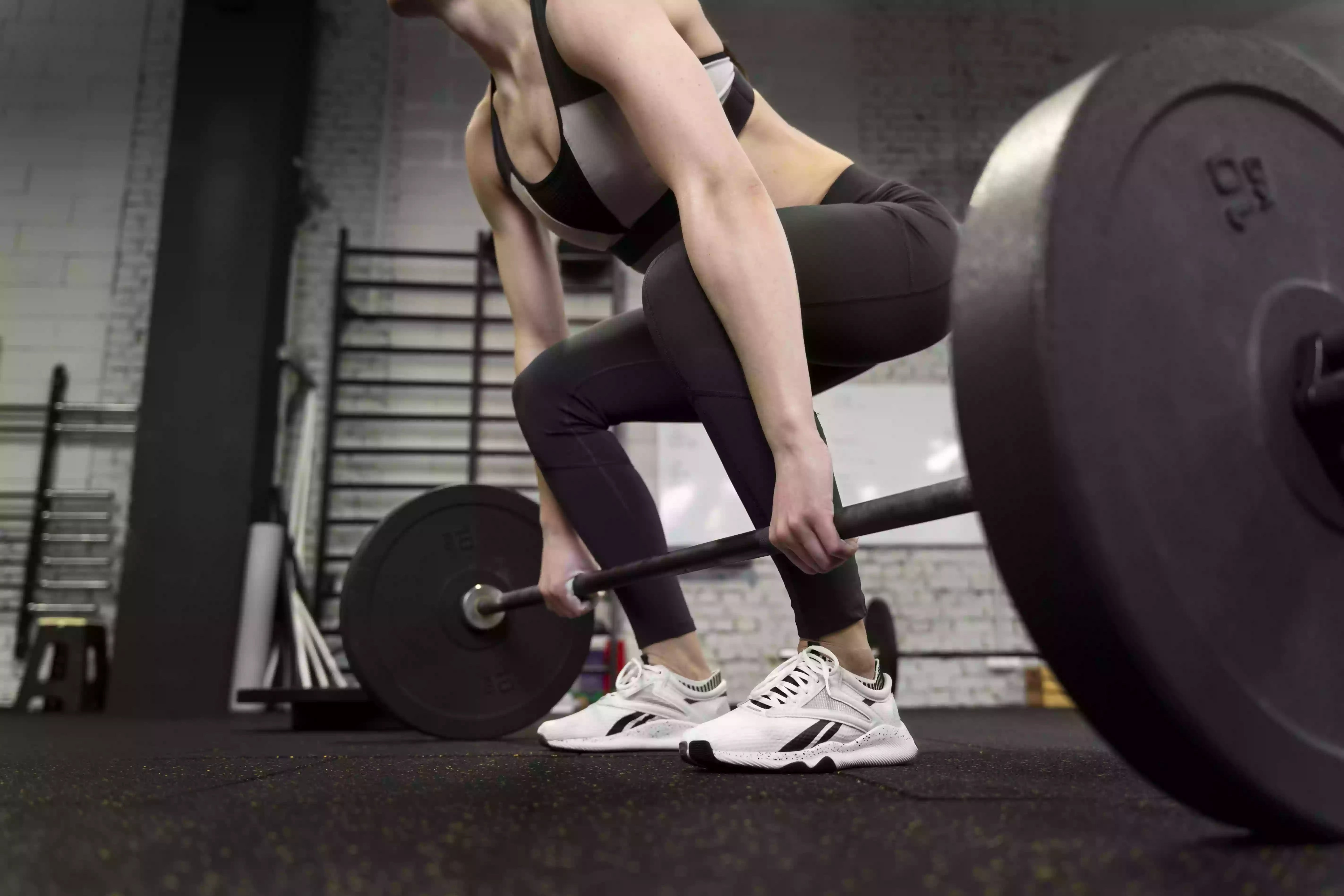Feeling sore after a workout? That’s your body saying, “I’m adapting.” While muscle soreness — or Delayed Onset Muscle Soreness (DOMS) — is normal after exercise, it can make simple tasks feel tough.
Whether it’s walking down stairs after leg day or struggling to lift your arms after upper-body training, muscle pain can disrupt your routine. But the good news is: there are simple, science-backed ways to recover faster — right from your home.
In this guide, we’ll show you how to reduce muscle soreness after a workout, the best home gym recovery tools, and what to eat and do for faster healing. Let’s dive in.
💡 What Causes Post-Workout Muscle Soreness (DOMS)?
Many people blame lactic acid — but that’s a myth. The real cause is tiny tears in your muscle fibers, especially during:
- New workouts
- Eccentric movements (like lowering weights)
- Increased training intensity
This damage triggers an inflammatory response, leading to soreness, stiffness, and reduced strength. DOMS usually starts 12–24 hours post-workout, peaks around 48–72 hours, and fades after a few days.
🧠 Did You Know? Even elite athletes get DOMS when switching up their training.
🚶♂️ Best At-Home Recovery Methods for Muscle Soreness
You don’t need a spa or sports clinic — you can relieve soreness and boost recovery with affordable, compact equipment in your home gym.
🌀 1. Active Recovery: Keep Moving Gently
Low-intensity movement improves circulation, delivering oxygen and nutrients to sore muscles.
Try:
- Under Desk Elliptical: Great for gentle movement while sitting
- Light walking or stretching
- Rowing Machine: Low-impact full-body cardio
- Easy cycling on an exercise bike
👉 Even 10–15 minutes of light movement can reduce stiffness and speed up healing.
🔄 2. Foam Rolling & Self-Myofascial Release (SMR)
Using a foam roller is like giving your muscles a deep-tissue massage. It:
- Relieves knots and trigger points
- Improves flexibility
- Reduces soreness
Roll slowly over sore muscles (quads, hamstrings, back) for 20–30 seconds per area.
💡 Tip: Use a vibration platform while foam rolling for even deeper release and improved blood flow.
🤸 3. Stretching: Dynamic vs. Static
Both types of stretching support muscle recovery:
- Dynamic Stretching: (leg swings, arm circles) before workouts or as light movement
- Static Stretching: (held for 20–30 seconds) after workouts or on recovery days
Stretch daily to maintain flexibility and prevent tightness from setting in.
🥤 Fueling Your Recovery: Nutrition & Hydration Tips
Your muscles need the right nutrients to heal after training.
💧 Stay Hydrated
Water helps:
- Flush out waste
- Deliver nutrients
- Support cell repair
Aim for 8+ glasses a day, and more if you're sweating heavily.
🧠 Bonus: Add electrolytes post-workout to help with hydration and recovery.
🍗 Protein for Muscle Repair
Muscles rebuild using amino acids from protein.
- Eat 20–40g of protein after training
- Choose from: chicken, eggs, Greek yogurt, tofu, or protein shakes
- Spread intake evenly through the day
This supports muscle protein synthesis and faster recovery.
🫐 Anti-Inflammatory Foods
Reduce DOMS by eating foods rich in antioxidants:
- Berries
- Fatty fish (salmon, mackerel)
- Turmeric
- Leafy greens
Include these in meals regularly to fight inflammation naturally.
🧊 Cold and Heat Therapy at Home
🧊 Cold Therapy (Cryotherapy)
Use after intense workouts to reduce swelling and pain.
- Cold showers
- Ice packs
- Ice baths (if tolerated)
The cold constricts blood flow and reduces inflammation in sore areas.
🔥 Heat Therapy
Use heat to relax stiff muscles and improve blood flow:
- Warm bath
- Heating pad
- Hot shower
Try heat in the morning or before light stretching.
⚠️ Avoid heat immediately after injury — it’s best once swelling has subsided.
💆 Massage & Vibration Recovery Tools
You don’t need a massage therapist to enjoy deep relief. Try:
- Massage guns for targeted muscle release
- Foam rollers for larger areas
- Vibration plates to improve blood flow and recovery time
Studies show that vibration therapy may reduce DOMS symptoms and improve flexibility. (Journal of Clinical Medicine, 2020)
💤 Don’t Skip Sleep: The #1 Recovery Tool
Muscle repair peaks during deep sleep. That’s when your body releases growth hormone, repairs tissue, and balances cortisol.
Aim for:
- 7–9 hours of sleep per night
- A consistent sleep schedule
- No screens 1 hour before bed
Sleep is free, powerful, and absolutely essential for muscle recovery.
🔁 How to Prevent Muscle Soreness in Future Workouts
📈 1. Increase Workout Intensity Gradually
Avoid jumping from beginner to beast mode overnight. Add:
- Weight
- Reps
-
Time under tension
… slowly.
This gives your body time to adapt and reduces risk of severe DOMS.
🚶♀️ 2. Warm Up & Cool Down Properly
A good warm-up preps your muscles. Try:
- 5 minutes on a treadmill or bike
- Dynamic stretches
A proper cool-down includes:
- Static stretches
- Foam rolling
- Light movement
This combo can dramatically reduce soreness post-workout.
🛑 3. Respect Your Rest Days
Rest is not slacking — it’s a critical part of growth.
Take 1–2 full rest days per week. Use under desk ellipticals or light yoga if you want to stay active. Your body needs time to:
- Repair tissue
- Replenish energy
- Strengthen joints
✅ Recap: DOMS Recovery Checklist
Here’s your go-to routine for fighting muscle soreness:
| ✅ Method | 📝 Tip |
|---|---|
| Active Recovery | Gentle walk or light cardio at home |
| Foam Rolling | 20–30 seconds per sore muscle group |
| Dynamic Stretching | Great for warm-ups or light movement |
| Protein Intake | 20–40g post-workout |
| Hydration | 8+ glasses/day |
| Cold/Heat Therapy | Ice after workouts, heat before stretching |
| Sleep | 7–9 hours per night |
| Vibration Therapy | Use a vibration platform for fast relief |
💪 Bounce Back Stronger — Right From Your Home Gym
Muscle soreness is part of the process — but it doesn’t have to sideline you. With smart recovery tools and habits, you can reduce pain, improve performance, and stay consistent.
Shop our best muscle recovery equipment:
- Vibration Platforms
- Foam Rollers & Massage Tools
- Under Desk Ellipticals
- Rowers & Treadmills for low-impact active recovery
👉 Explore All Recovery Equipment – Canada Shipping Available














Leave a comment
This site is protected by hCaptcha and the hCaptcha Privacy Policy and Terms of Service apply.